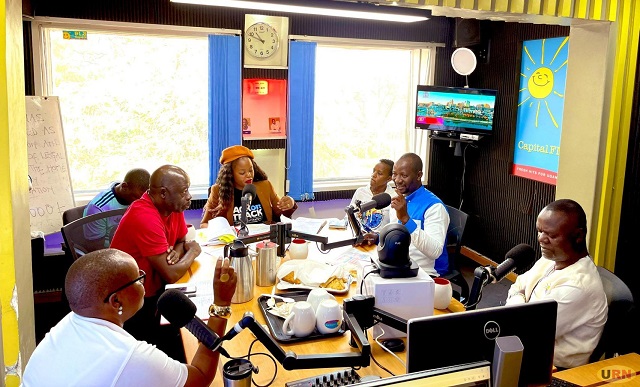
Kampala, Uganda | THE INDEPENDENT | Rural broadcasters under the Rural Broadcasters Owners Association of Uganda (RUBA) have reaffirmed their stance against providing free airtime for mobilization efforts related to the National Identification and Registration Authority (NIRA) registration exercise. The broadcasters have also accused government agencies of misusing the allocated government hour on radio, which was originally intended for other strategic national communications.
Earlier this week, the Secretary in the Office of the President, Hajji Kakande Yunus, reminded broadcasters that, by law, they are required to allocate at least one hour each week to cover strategic national events, including the ongoing NIRA registration campaign. However, RUBA chairperson Julius Tumusiime argued that radio stations are independent businesses with operational costs, which they sustain through advertisements and paid programming.
Tumusiime emphasized that RUBA members have been instructed not to broadcast any unpaid messages related to NIRA activities until discussions are held with the Uganda Communications Commission (UCC) and the Minister of Information, Communication, and Technology (ICT) on how the government hour should be utilized.
“It is unfortunate that organizations like NIRA, which have structured plans, behave as though they have no budget for communication. Broadcasters must be involved in such decisions,” Tumusiime stated.
RUBA’s chairperson expressed concern that Resident District Commissioners (RDCs) have been allocating the government hour to various agencies, ministries, and civil society organizations, effectively bypassing radio stations’ control over their programming. Tumusiime noted that it has become common for these entities to use the government hour under the guidance of RDCs, yet still take photos, record audio, and even request receipts for accountability purposes.
“It was really… a misuse of the arrangement. We see RDCs’ offices giving away the hour without any input from us, and yet we bear the operational costs,” Tumusiime remarked.
Obed Kibaya Kithende, Production Manager at Messiah Radio in Kasese, echoed the need for better collaboration between the government and private broadcasters. He pointed out that radio stations often lack control over how the government hour is used, and sometimes even potential clients are allocated airtime through the RDCs’ directives.
“Like for us, we don’t get to decide how the government hour is spent, yet it affects our business operations,” Kithende explained.
Raphael Orisa, Managing Director of West Nile Broadcasting Services Limited, argued that the UCC guidelines need to be amended to clearly define what constitutes a national event. He also urged the need for more dialogue with the President on broadcasting issues and closer engagement with the UCC on regulatory matters.
“When it comes to license fees, UCC even closes radios if payments are delayed, yet they provide no support when we face issues. They behave like the Uganda Revenue Authority (URA) — they only care about collecting fees, not the survival of our businesses,” Orisa lamented.
Overall, RUBA’s leadership is pushing for a review of how the government hour is managed, insisting that broadcasters must be consulted and compensated when their services are required to support government campaigns.
****
URN
 The Independent Uganda: You get the Truth we Pay the Price
The Independent Uganda: You get the Truth we Pay the Price





